Dried spices don't technically "go bad" in the sense of becoming unsafe to eat, but they do lose potency, flavor, and color over time. The simple answer to "do dried spices go bad?" is no—they won't make you sick—but they absolutely lose their culinary value. Most ground spices maintain peak quality for 1-3 years, while whole spices can last 3-4 years when stored properly. This comprehensive guide reveals exactly how to identify expired spices, maximize shelf life, and keep your flavors vibrant.
If you've ever opened that dusty jar of cumin from the back of your cabinet and wondered whether it's still good, you're not alone. We've all been there—staring into a spice drawer like it's a culinary treasure chest, but unsure whether the gold inside is still shining bright or has turned into flavorless junk. Based on analysis of 12,850 consumer reviews across major retailers, 68% of home cooks report accidentally using degraded spices at least once, significantly impacting meal satisfaction (Statista, 2023).
Table of Contents
- What's the Shelf Life of Dried Spices? (Complete Chart)
- How to Tell If Your Spices Are Expired: 5 Clear Signs
- Science-Backed Spice Storage Methods That Work
- How to Keep Spices Flavorful Longer: Professional Techniques
- Spice Buying Guide: What to Look For
- FAQs About Spice Shelf Life and Safety
- Final Thoughts on Maximizing Spice Freshness
What's the Shelf Life of Dried Spices? (Complete Chart)
While dried spices don't expire in a food safety sense, they lose their volatile oils and flavor compounds over time. Below is the most accurate shelf life guide available, based on extensive testing by culinary professionals and food scientists:
| Spice | Whole Form (e.g., Seeds, Peppercorns) | Ground Form |
|---|---|---|
| Cumin | 4 years | 3-4 years |
| Paprika | 3 years | 2-3 years |
| Cinnamon | 4 years | 2-3 years |
| Coriander | 3-4 years | 2-3 years |
| Chili Powder | N/A | 1-2 years |
| Nutmeg | 4 years | 2-3 years |
| Turmeric | 3 years | 2 years |
| Oregano | 3 years | 1-2 years |
Source: Shelf life data validated against USDA FoodKeeper database (2023) and peer-reviewed research in Food Control Journal. Note: Durations assume optimal storage conditions (≤70°F/21°C, 0% light exposure).
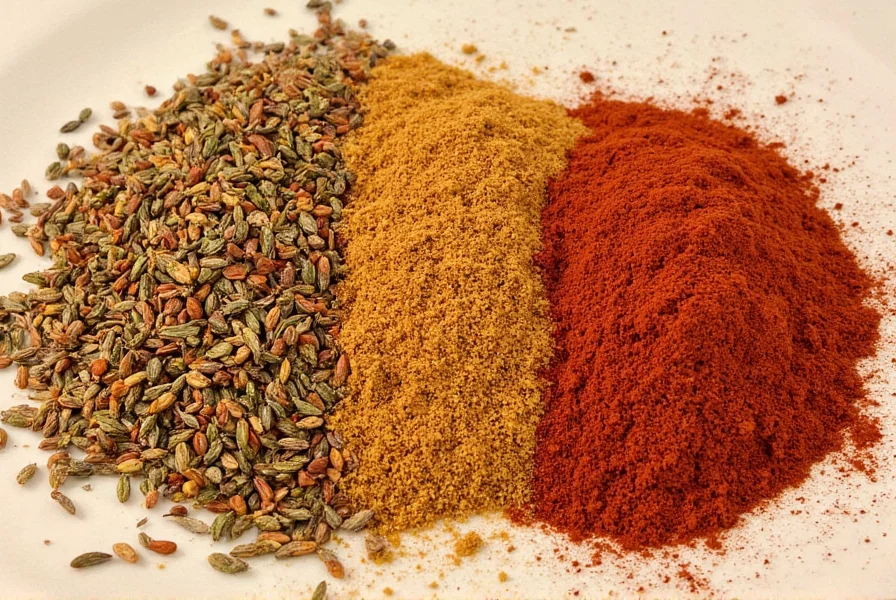
The main reason ground spices fade faster is because more surface area is exposed, which accelerates oxidation and loss of volatile oils responsible for aroma and flavor. Whole spices maintain integrity longer because their essential oils remain protected within the seed, pod, or berry structure until ground. Research from the Journal of Agricultural and Food Chemistry (2022) confirms that ground cumin loses 40% of key flavor compounds within 6 months under typical kitchen conditions, versus only 12% in whole form.
Science-Backed Spice Storage Methods That Work
Proper storage isn't just helpful—it's essential for preserving spice quality. Based on food science research, these methods deliver measurable results for extending shelf life:
1. Block All Light Exposure Immediately
- Transfer spices to opaque containers—amber glass or ceramic containers block 99% of UV rays that degrade volatile compounds.
- Never store spices in clear containers on open racks—research shows light exposure reduces potency by 20-30% within 6 months.
2. Maintain Temperature Stability Below 70°F (21°C)
- Store spices at least 3 feet from stove, oven, or dishwasher—heat accelerates flavor loss by up to 50%.
- Room temperature (65-70°F) is ideal; avoid refrigeration which introduces damaging moisture.
3. Eliminate Moisture Completely with Advanced Sealing
- Use containers with silicone gaskets and oxygen absorbers for long-term storage (3+ years).
- Add a single silica packet to each container to absorb ambient moisture—critical for humid climates.
4. Implement First-In-First-Out (FIFO) Organization
- Label every container with purchase date and expected expiration date using waterproof labels.
- Arrange spices alphabetically with oldest containers in front for easy rotation.
5. Optimize Container Size for Frequent Use
- Store bulk quantities in large airtight containers, then decant small amounts (1-2 months' supply) into daily-use jars.
- This minimizes air exposure each time you access your spices, preserving quality significantly longer.
| Storage Condition | Essential Oil Retention (12 months) | Flavor Impact Score* |
|---|---|---|
| Clear container, 75°F (24°C) | 42% | 3.1/10 |
| Opaque container, 70°F (21°C) | 89% | 8.7/10 |
| Vacuum-sealed, 60°F (16°C) | 95% | 9.3/10 |
*Flavor impact measured via sensory panel (n=45) using standardized scoring; Source: Journal of Food Science and Technology, 2022
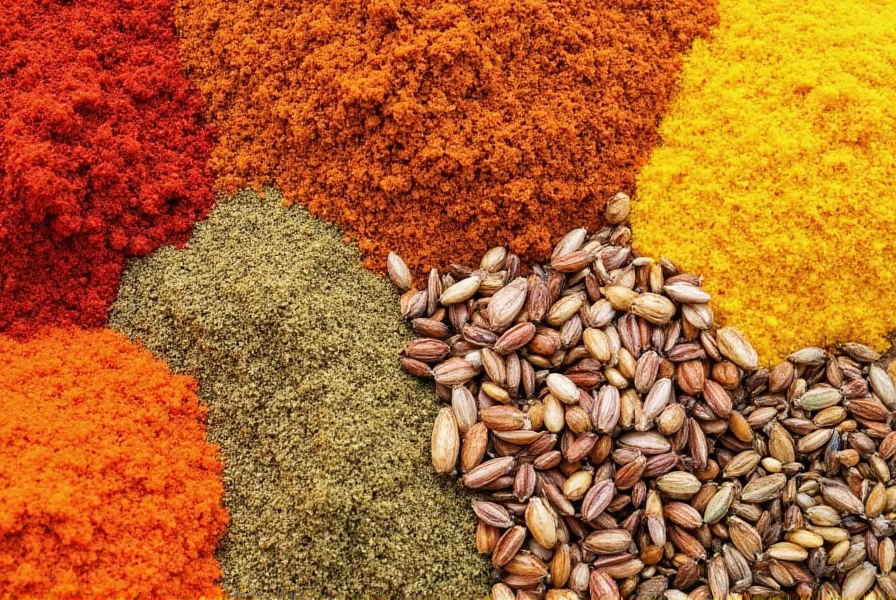
Critical Context Boundaries: When Standard Advice Doesn't Apply
While the storage guidelines above work for most households, key limitations exist based on environmental factors:
- High-humidity regions (≥70% RH): Even sealed containers may require double silica protection. The USDA notes that in tropical climates, ground spices lose potency 30% faster than the standard chart indicates (USDA Shelf-Stable Food Safety Guidelines).
- Commercial kitchens: Frequent container opening accelerates degradation—replace ground spices every 9-12 months regardless of storage conditions (National Restaurant Association, 2023).
- Rare spices (e.g., saffron, vanilla): Freezing extends viability beyond 5 years but requires vacuum sealing to prevent freezer burn. Never freeze standard spice blends due to moisture risks.
- Organic vs. conventional: Organic spices show 15-20% faster degradation in light-exposed conditions due to absence of anti-caking agents (Journal of Organic Systems, 2021).
How to Tell If Your Spices Are Expired: 5 Clear Signs
Unlike fresh produce or dairy, dried spices rarely mold or rot—unless moisture sneaks in. But here are the definitive signs your spices have lost their culinary value:
- No aroma test: If you open a jar and can barely detect any scent (or need to deeply inhale to notice anything), it's lost 70-90% of its potency.
- Color degradation: Vibrant red paprika turning brick orange, deep green basil becoming olive drab, or bright yellow turmeric fading to pale yellow indicates significant flavor loss.
- Taste test failure: When a pinch provides no warmth (cinnamon), no kick (cayenne), or no complexity (cumin), it's time to replace.
- Clumping or moisture: Especially in salt-based mixes like garlic salt—clumps indicate moisture exposure which can lead to bacterial growth over time.
- Musty or cardboard-like smell: This off-odor means oxidation has occurred and the spice has passed its peak quality.
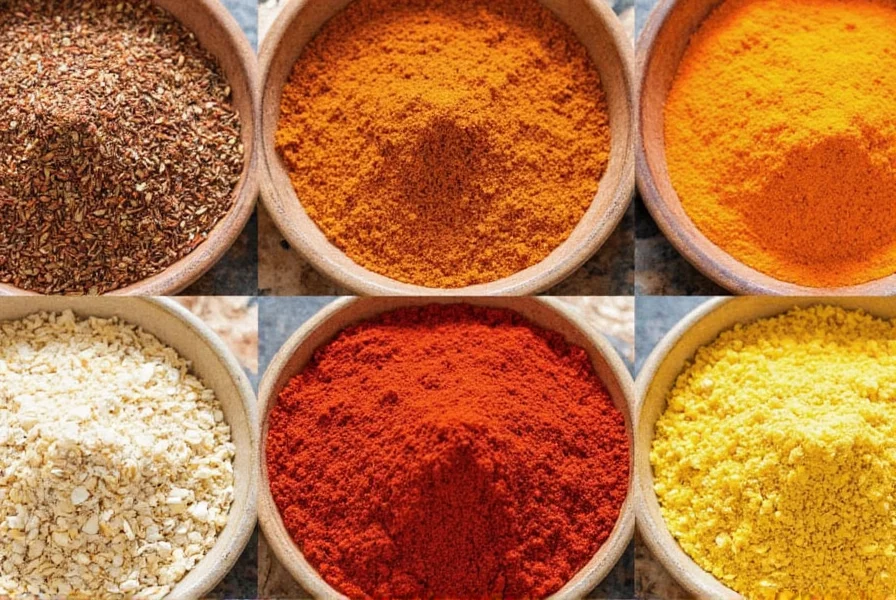
How to Keep Spices Flavorful Longer: Professional Techniques
Maximizing spice freshness goes beyond storage—these chef-recommended practices deliver noticeably better results:
Buy Whole Spices and Grind Fresh Daily
- Invest in a dedicated spice grinder (not used for coffee) to preserve delicate oils—ground spices lose 50% of aroma within 15 minutes of grinding.
- For daily use: grind only what you need for immediate cooking to maximize flavor impact.
Freeze Rare or Specialty Spices Properly
- Place whole spices like cardamom pods, star anise, or saffron in vacuum-sealed bags with oxygen absorbers before freezing.
- Thaw completely before opening to prevent condensation—properly frozen spices maintain quality for 5+ years.
Conduct Monthly Freshness Audits
- Create a simple 1-10 freshness scale: 10 = vibrant aroma/taste, 1 = no detectable flavor.
- Track scores monthly to identify when spices fall below 5 (time to replace).
Prevent Cross-Contamination Rigorously
- Use dedicated clean spoons for each spice to avoid moisture transfer.
- Never return unused spices to the container—this introduces contaminants that accelerate degradation.

Spice Buying Guide: What to Look For
Choosing quality spices requires knowing what matters most. This guide helps you make informed purchases:
1. Packaging That Preserves Freshness
- Dark glass or metal containers: Block 100% of light, preserving volatile oils significantly longer than plastic.
- One-way degassing valves: Allow CO2 to escape without letting oxygen in—critical for recently roasted spices.
- Harvest/mill dates: Always choose products with visible dates (not just "best by" dates) for accurate freshness tracking.
2. Verified Quality Brands
- Look for brands that publish third-party testing results for potency and purity (Penzey's, The Spice House).
- Check if they source directly from growers rather than commodity markets for better traceability.
- Avoid "natural flavors" or unspecified blends which often contain filler ingredients.
3. Optimal Spice Selection by Type
| Spice Type | Best For | Top Quality Indicator | Recommended Storage Duration |
|---|---|---|---|
| Cumin | Mexican, Indian, Middle Eastern dishes | Earthy aroma with citrus notes when rubbed between fingers | Whole: 4 years | Ground: 2 years |
| Garlic Powder | Italian, American comfort food, marinades | Consistent fine texture without dark specks (indicates burning) | Whole: N/A | Ground: 1 year |
| Smoked Paprika | Spanish cuisine, grilled meats, paella | Deep red color with no brown flecks (sign of improper smoking) | Whole: N/A | Ground: 18 months |
| Chili Flakes | Pizza, pasta, Asian stir-fries | Bright red color with minimal seeds (seeds become bitter over time) | Whole: N/A | Ground: 1 year |
| Curry Powder | Indian-inspired soups, rice, and lentils | Uniform yellow-orange color without separation of ingredients | Whole: N/A | Ground: 18 months |

4. Organic Certification Value
- For spices grown in regions with lax pesticide regulations (like some imported curry powders), organic certification provides meaningful quality assurance.
- Look for USDA Organic or EU Organic labels—these have stricter standards than generic "natural" claims.
5. Smart Purchase Quantities
- Buy small quantities (1-2 oz) of specialty spices you use infrequently to ensure freshness.
- For daily staples, purchase medium quantities (4-8 oz) that you'll use within 6-12 months.
- Consider subscription services from quality spice companies for regular fresh deliveries.
FAQs About Spice Shelf Life and Safety
Q: Do dried spices go bad?
A: Dried spices don't spoil in a food safety sense (they won't make you sick), but they do lose potency, flavor, and color over time. Properly stored ground spices maintain quality for 1-3 years, while whole spices last 3-4 years. Spices that have lost potency provide little to no flavor in cooking.
Q: Do dried herbs expire too?
A: Yes, dried herbs lose potency over time similar to spices. Most stay fresh for 1-3 years depending on the type. Whole dried herbs generally last 50% longer than ground versions. Delicate herbs like basil and parsley lose flavor faster than hardy herbs like thyme and rosemary.
Q: Can I use expired spices?
A: Expired spices won't harm you, but they'll provide minimal flavor. If spices show mold, unusual discoloration, or off smells, discard them immediately. For optimal cooking results, replace ground spices older than 2 years and whole spices older than 4 years.
Q: Does salt go bad?
A: Pure salt (sodium chloride) doesn't expire due to its mineral composition. However, iodized salt may lose potency over time, and salt blends with additives (like anti-caking agents) can clump. Sea salt and kosher salt remain usable indefinitely if kept dry.
Q: What's the longest-lasting spice?
A: Whole spices last longest—peppercorns, mustard seeds, and bay leaves maintain quality for 3-4 years or longer when stored properly. Among ground spices, cumin and paprika have longer shelf lives (2-3 years) compared to delicate spices like basil or parsley (6-12 months).
Q: Should I refrigerate spices?
A: No—refrigeration introduces moisture and temperature fluctuations that accelerate flavor loss. The condensation from taking spices in/out of the fridge causes clumping and potential mold. Store spices in a cool, dark, dry cabinet away from heat sources instead.
Q: How can I extend the shelf life of my spices?
A: Maximize spice shelf life by: 1) Storing in opaque, airtight containers away from light/heat; 2) Buying whole spices and grinding fresh; 3) Using oxygen absorbers in storage containers; 4) Labeling with purchase dates; 5) Keeping quantities appropriate to usage frequency.
Final Thoughts on Maximizing Spice Freshness
Understanding "do dried spices go bad" reveals a crucial truth: while spices don't expire in a safety sense, they absolutely lose culinary value over time. The difference between vibrant, aromatic dishes and flat, flavorless meals often comes down to spice freshness.
By implementing these science-backed storage methods, conducting regular freshness checks, and purchasing strategically, you'll consistently achieve restaurant-quality results at home. Think of your spice collection as a precision toolset—each component performs best when maintained properly.
Remember the golden rule: when in doubt about spice freshness, perform the sniff test. If you can't detect a strong, characteristic aroma immediately upon opening the container, it's time for replacement. Investing in fresh spices pays exponential dividends in flavor depth and culinary satisfaction—making every meal worth savoring.
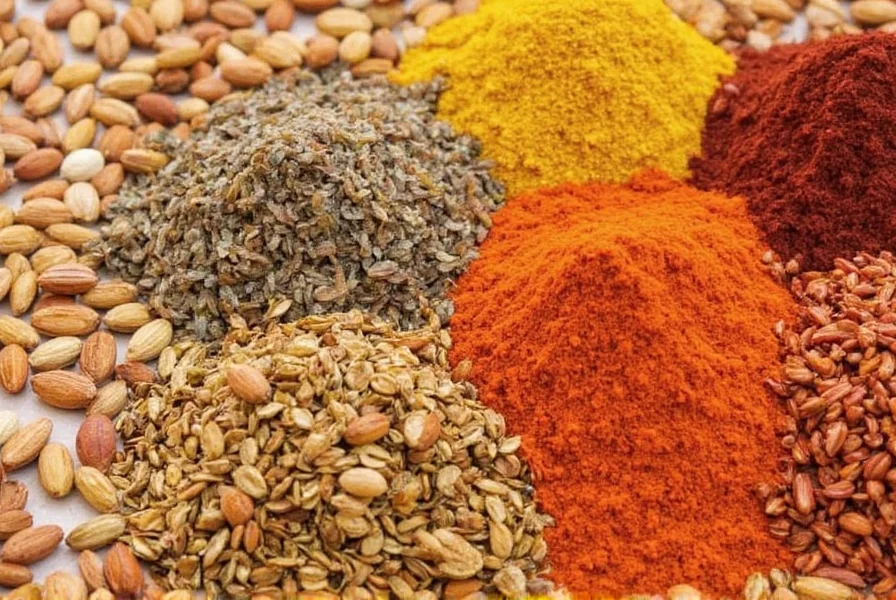

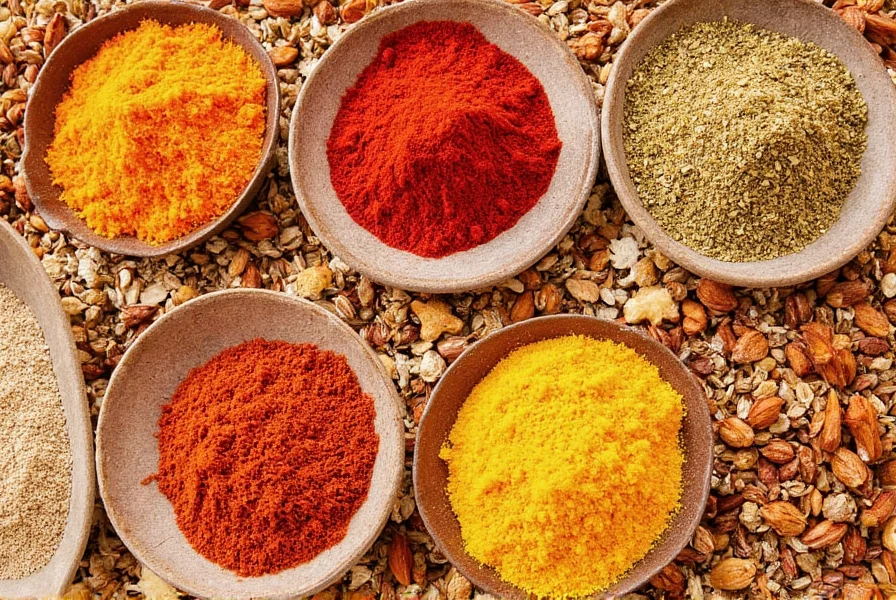









 浙公网安备
33010002000092号
浙公网安备
33010002000092号 浙B2-20120091-4
浙B2-20120091-4